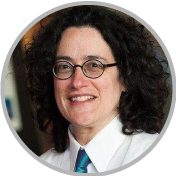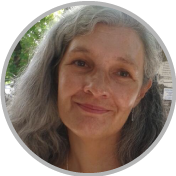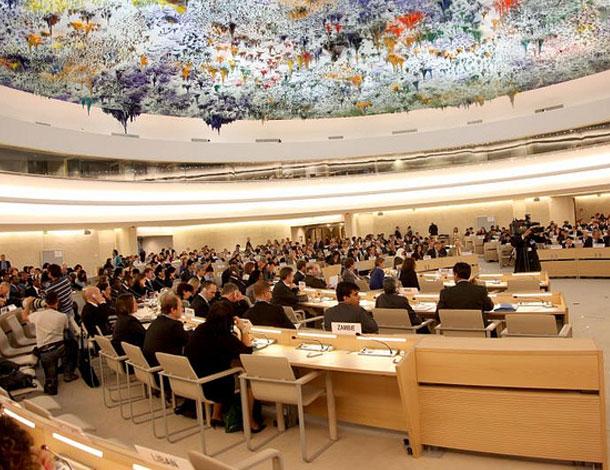The Human Rights Council (HRC) is the key intergovernmental body within the United Nations system responsible for the promotion and protection of all human rights around the globe. It holds three regular sessions a year: in March, June and September. The Office of the UN High Commissioner for Human Rights (OHCHR) is the secretariat for the HRC. The 35th session of the HRC takes place from 6-23 June, 2017.
Ultra-conservative and anti-rights actors are operating in international human rights spaces with increased impact, frequency, coordination, resources, and support.
They are mobilising strategically in UN spaces including at the Human Rights Council (HRC).
We posed two questions to activists who are involved in this process to reflect on their perspective.
-
Meghan Doherty, Policy & Advocacy Officer (Global) from Action Canada for Sexual Health and Rights
-
Cynthia Rothschild, Human rights and lesbian activist
-
Alejandra Sardá-Chandiramani, Director of Programs at AWID
Why do you think feminists should engage more with HRC sessions?

Cynthia Rothschild:
There are two sets of reasons feminists ought to engage with the HRC:
First, we always need to be everywhere, deploying all of our strategies, including those needed in global / inter-governmental spaces. We need to use these sites to advance our own human rights agendas and concerns. We need to use the human rights system to advance it -human rights evolve and are fluid, and we are the ones, along with other social justice activists and movements, to “move the needle” on rights concerns we care about.
We’ve opened space on sexual rights, reproductive rights, violence and discrimination by non-State actors, and women human rights defenders, as four fairly recent examples of where we’ve made positive change. We need to use the intergovernmental spaces (and the Council) to educate allies and opponents, to build coalitions and enhance our own capacity to do our work and support the agendas of others. We can make change at the Council, and we should.
The second set of reasons is this: if feminists don’t take that space in the Council, we will cede it to those who seek to attack women’s human rights, and rights related to gender and sexuality.
The Council is also a space where governments and NGOs with very conservative political agendas choose to do their work. We need to be there to challenge them, to call for accountability and to stem fundamentalist agendas.
Alejandra Sardá-Chandiramani:

The spaces in which governments come together - like the HRC - to discuss human rights can easily become the stage of purely formal gestures with diplomats telling each other how great they are... Or even worse: shamelessly using human rights concerns to further other agendas.
One way to 'ruin their party' is to have a strong activist presence there, to make sure that the real human rights issues will not be forgotten or trivialized. And for that activist presence to really make a difference you need people who will not be satisfied with cosmetic changes, people who will point out that oppression is intrinsic to the capitalist and patriarchal structures under which we live, and that all oppressions are interlinked and reinforce each other.
Feminists are among those who can bring these ideas into spaces like the HRC and push for them to really be at the service of all human rights for all persons, so our presence is key and we need to be many more than what we are right now.

Meghan Doherty:
The Human Rights Council, like all institutions, is a site of patriarchy that needs to be challenged by feminists at every step and on every issue.
There is a tendency to isolate women’s rights to particular gender related resolutions which are then hotly contested by States, with concerted attempts to undermine women’s autonomy and State obligations. The consequence is that on the one hand, women’s rights are less visible in resolutions focused on, for example, country situations and then other, are hyper-politicized and instrumentalized to score political points among States.
Feminists need to be engaged in all of these debates to put pressure on governments to uphold their obligations to women’s human rights, to advance constructive dialogue that results in progressive normative standards and to share their analysis with States, civil society, UN agencies and the mechanisms of the Council so that all stakeholders are exposed to the ways in which all human rights are profoundly influenced by gender and sexuality.
What are some of the specific developments that you are keeping your eye on in this session?
Alejandra Sardá-Chandiramani:
For some years already, a group of socially conservative countries have been introducing resolutions on 'Protection of the family' that attack some of the core gains that feminists and other activists have made in the UN human rights system and also in the public consciousness in many countries.
Among those gains is the idea that the family can also be a site for oppression - particularly for women, children, the elderly, PWDs and gender non conforming persons - and that the rights of individuals within it (to their privacy, to not be subjected to violence, etc.) have to prevail over the preservation of 'the family' itself. And, of course, the idea that there is no such thing as 'the family' but rather that human beings come together for love and support in many different configurations that can claim the title of 'families' if they so desire.

AWID is part of a vast alliance of civil society organizations advocating for a Binding Treaty on Transnational Corporations - that is, a legal tool that will allow governments to protect people from the multiple damages that corporations can cause to our lives and well-being (if they dare to, of course).
As part of that long-term initiative we are doing a parallel event on "Feminists for a Binding Treaty: Women Challenging Corporate Power" with some of our allies, and will actively be lobbying States to support the proposed treaty. For us, this work is of critical importance to address structural class inequalities that are aggravated when factors like gender, ethnicity/race, age, disability and sexuality also play in.
Meghan Doherty:
Several Special Procedures will be presenting their reports which contain cutting edge analysis on sexuality and gender as they relate to human rights.
For example, the Special Rapporteur on extrajudicial, summary or arbitrary executions focused her report on a gender-sensitive approach to arbitrary killings, which notes that in some cases denial of safe abortion can amount to arbitrary killing.
The SRI will also be very focused on several resolutions including Child, Early and Forced Marriage, Discrimination against Women, Violence against Women and Youth and Human Rights to ensure States are moving forward on these issues, as well as monitoring the regressive Protection of the Family resolution, which seeks to undermine women’s rights and provide cover for States to justify human rights violations within family settings.
Further, we will be closely listening to the statements during the annual day of discussion on women’s human rights, as these are often a barometer of the political tone adopted during the resolution negotiations.
Cynthia Rothschild:
Each Council session has a number of important issues under discussion, all of which are somehow important to women, and issues of gender. Every country discussion, and every human rights issue (whether it’s about extrajudicial executions or racism or rights of migrants, as three examples at this Council session) are and can be made relevant to rights related to gender.
But my specific interests at this meeting will be related to sexual orientation/gender identity, discrimination against women, women human rights defenders and fundamentalisms. And I’m always interested in seeing who’s doing what: what governments are misbehaving and what activists are choosing to work on what issues. That’s part of the mystery of the space, too.
